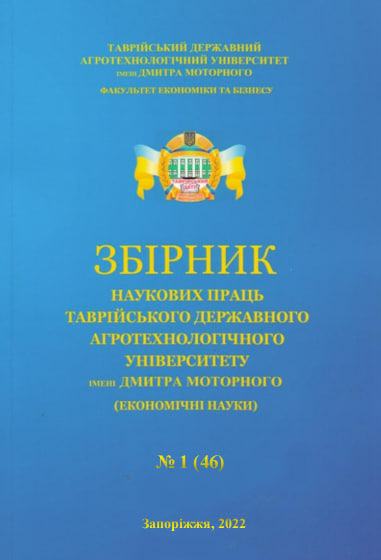ТЕНДЕНЦІЇ РИНКУ ПРАЦІ У СФЕРІ ТУРИЗМУ В УМОВАХ ЄВРОІНТЕГРАЦІЙНИХ ПРОЦЕСІВ
Анотація
Туризм є однією з перспективних галузей економіки. Інтенсивний розвиток туристичної сфери в Україні в умовах глобалізованого економічного простору, інтенсивних процесів інтеграції між сучасними підприємствами різних країн світу обумовлює необхідність підготовки висококваліфікованих менеджерів туризму, які володіють уміннями ефективно здійснювати професійне іншомовне спілкування і якісно розвивати міжнародне співробітництво у сфері туризму. У статті розглядається проблема розробки та імпелентації курсу англійської мови за професійним спрямуванням для майбутніх фахівців туристичної галузі у вищих навчальних закладах освіти в Україні. Розвиток туризму в Україні залежить від низки факторів, в тому числі і від якості роботи фахівців галузі, що пояснює запит стейкхолдерів на фахівців, які здатні працювати у міжнародних комерційних і професійних спільнотах, ефективно імплементувати концетпуальні рішення і якісно виконувати поставлені професійні завдання, включаючи письмову та усну комунікацію у цифровому і традиційному форматах. Згідно освітньо-кваліфікаційної характеристики, англомовна комунікативна компетентність – це складова професійної компетентності фахівця туристичної галузі. Аналіз останніх досліджень, публікацій та наявного навчально-методичне забезпечення дисципліни «Англійська мова за професійним спрямуванням» для фахівців туристичної галузі актуалізує подальше вивчення питання аналізу потреб здобувачів освіти спеціальності «Туризм» і вдосконалення такого курсу на основі аналізу компонентів комунікативної компетентності фахівців туристичної галузі. Аналіз потреб – це основний етап розробки курсу англійської мови за професійним спрямуванням, оскільки дає можливість забезпечити належні навчально-методичні матеріали для ефективного розвитку комунікативних умінь у сфері читання, письма, аудіювання та усного мовлення. На цьому етапі встановлюється зв'язок між цільовими професійними ситуаціями мовлення, видами і формами професійної комунікативної діяльності, запитами від роботодавців, вимогами регіонального туристичного ринку і змістом курсу. Специфіку роботи над розвитком комунікативної компетентності здобувачів освіти спеціальності «Туризм» розглянуто з точки зору компонентів комунікативної компетентності: лінгвістичного, дискурсивного та соціокультурного. Лінгвістичний компонент комунікативної компетентності задіює вивчення професійно-орієнтованої лексики, граматичних елементів і ресурсів, семантики, сприйняття і продукування мови в усній і письмовій формах. Дискурсивний компонент передбачає роботу над лінгвістичними функціями, стратегіями, стилями тощо, з метою здійснення комунікації в реальних ситуаціях професійного взаємодії, відповідно до конкретної мети, ситуації і обставин, при яких відбувається спілкування. Врахування соціокультурного компоненту комунікативної компетентності забезпечує уміння взаємодіяти у певній професійній ситуації у різноманітному соціокультурному контексті і передбачає освоєння відповідних лінгвістичних маркерів і висловлювань. З метою підвищення конкурентоспроможності, відповідно до вимог сучасного ринку праці і процесів глобалізації, інтеграції, мобільності, розширення інформаційного простору та інтенсивного розвитку технологій, актуальним є інтегрувати формування «м’яких навиків» у курс іноземної мови за професійним спрямуванням для майбутніх фахівців туристичної галузі. На сучасному етапі, з метою адекватного реагування на швидкозмінювані потреби галузі та умови роботи навчальних закладів, доцільно вводити компоненти
ICT силабусу і забезпечити роботу над уміннями «навчання впродовж життя». Відповідно, забезпечується оновлення навчально-методичного забезпечення, активізація комунікативних видів роботи на заняттях, покращення якості навчального середовища і вибудовується силабус дисципліни на основі вимог комунікативно-компетентнісного підходу.

